I am delighted to welcome Lizzie Lamb onto my blog today. Lizzie a best-selling novelist, an active public speaker and a prolific supporter of her fellow writers. Over to Lizzie for a timeline of her favourite reads.
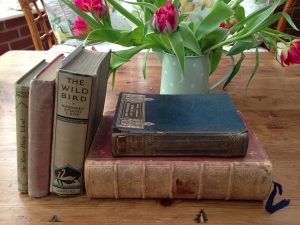
We all have books we simply can’t bear to part with because, like the old friends they are, they’ve stuck with us through thick and thin. The oldest book in my collection is Clarendon’s History of the Great Rebellion (1858) followed by The Wild Bird – Margaret Stuart Lane (1933) The Scarlet Pimpernel (1927), The Prisoner of Zenda and its sequel, Rupert of Henzua (1930).
My other ‘keepers’ are books which saw me through from girlhood to womanhood: Greengage Summer, I Capture The Castle, Bonjour Tristesse and The Dud Avocado.
With the fickleness of youth I abandoned these when I discovered Jilly Cooper’s novels (1976). My love of rom com developing within their pages before coming full circle with Bridgit Jones in 1996. I can’t let go of my penguin classics or historical romances by the likes of Georgette Heyer, Daphne Du Maurier, Jean Plaidy, Margaret Irwin and Anya Seaton. My particular favourite is Lady of Hay by Barbara Erskine.
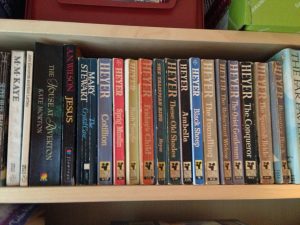
When I want to remind myself how to write humorously, I revisit Wodehouse, Terry Pratchet, Tom Sharpe and the anarchic Catch 22.
I also treasure my poetry books…John Donne, WB Yeats, The War Poets, TS Eliot, Dylan Thomas, Ted Hughes and Philip Larkin.
And in particular, The Mersey Sound – Adrien Henri, Roger McGough and Brian Patten which reminds me of when I was recovering after an appendectomy in Grantham General (1970). I was reading poems to the other patients in my ward and causing such hilarity that it was confiscated by the ward sister until I was discharged. Honestly…
I have two comfort reads Tristan and Isuelt by Rosemary Sutcliffe (so beautifully written) and Hons and Rebels by Jessica Mitford which is great fun. I want to spend the afternoon with the Mitford gels in the Hons Cupboard discussing topics considered unfit for young ladies. Want to come with me?
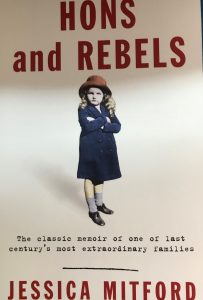
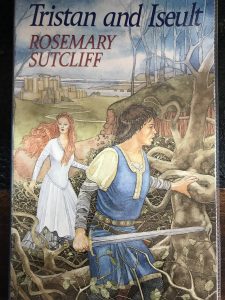
About Lizzie
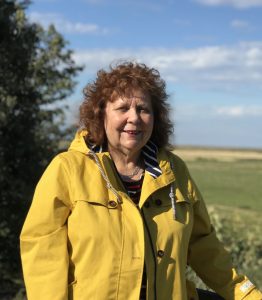
After teaching her 1000th pupil and working as a deputy head teacher in a large primary school, Lizzie decided to pursue her first love: writing. She joined the Romantic Novelists’ Association’s New Writers’ Scheme, wrote Tall, Dark and Kilted (2012), quickly followed by Boot Camp Bride. She went on to publish Scotch on the Rocks, which achieved Best Seller status within two weeks of appearing on Amazon and her next novel, Girl in the Castle, reached #3 in the Amazon charts. Lizzie is a founder member of indie publishing group – New Romantics Press, and has co-hosted author events at Aspinall, St Pancras and Waterstones, Kensington, talking about the research which underpins her novels. Lizzie latest romance Take Me, I’m Yours is set in Wisconsin, a part of the USA which she adores. This novel also achieved BEST SELLER status >travel>USA. She has further Scottish-themed romances planned and has just returned from a tour of the Scottish Highlands researching men in kilts. What’s not to like? As for the years she spent as a teacher, they haven’t quite gone to waste. She is building a reputation as a go-to speaker on indie publishing, and how to plan, write, and publish a debut novel. Lizzie lives in Leicestershire (UK) with her husband, David.
She loves to hear from readers, so do get in touch . . .
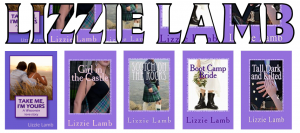
Lizzie’s Links
https://www.amazon.com/author/lizzielamb
www.facebook.com/LizzieLambwriter
website: www.lizzielamb.co.uk
Newsletter – http://tinyurl.com/ELNL-2016
Linked in: uk.linkedin.com/pub/lizzie-lamb/18/194/202/
Goodreads http://tinyurl.com/cbla48d
Pinterest: http://www.pinterest.com/lizzielamb/
https://twitter.com/lizzie_lamb


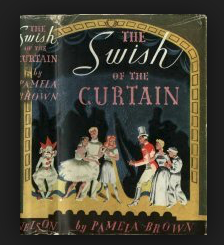 The first is The Swish Of The Curtain by Pamela Brown. It concerns a group of children who set up their own theatrical company – The Blue Doors. There are follow up books, but it’s the first that tops the list. As a child with a desperate desire to be an actress, this spoke to me in spades, and I can’t remember how many times I read it.
The first is The Swish Of The Curtain by Pamela Brown. It concerns a group of children who set up their own theatrical company – The Blue Doors. There are follow up books, but it’s the first that tops the list. As a child with a desperate desire to be an actress, this spoke to me in spades, and I can’t remember how many times I read it.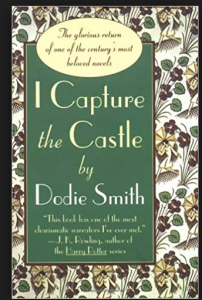 The second is I Capture The Castle by Dodie Smith, given to me at the age of twelve by friends of my parents who belonged to a book club. I got all their cast offs… The first line out-Rebeccas Rebecca in my opinion: “I write this sitting in the kitchen sink…” A journal, written in three different exercise books by a seventeen year old girl. Thoroughly immersive, romantic and inspirational. How many girls started journals as a result of reading this book? I did. I even used Dodie Smith as the subject of a thesis at university.
The second is I Capture The Castle by Dodie Smith, given to me at the age of twelve by friends of my parents who belonged to a book club. I got all their cast offs… The first line out-Rebeccas Rebecca in my opinion: “I write this sitting in the kitchen sink…” A journal, written in three different exercise books by a seventeen year old girl. Thoroughly immersive, romantic and inspirational. How many girls started journals as a result of reading this book? I did. I even used Dodie Smith as the subject of a thesis at university.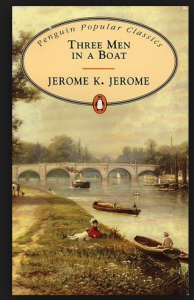 The third is Three Men in a Boat, by Jerome K Jerome. My father had a copy, which I inherited, and now have two more of my own. My parents and I used to read passages out loud to one another and end up in paroxisms of laughter. I am delighted to say that my own adult children still do that – from choice! Amazing. Written in 1889, the language is surprisingly modern, and aficionados only have to say “The Cheese!” or “Uncle Podger!” to one another to be lost in helpless mirth.
The third is Three Men in a Boat, by Jerome K Jerome. My father had a copy, which I inherited, and now have two more of my own. My parents and I used to read passages out loud to one another and end up in paroxisms of laughter. I am delighted to say that my own adult children still do that – from choice! Amazing. Written in 1889, the language is surprisingly modern, and aficionados only have to say “The Cheese!” or “Uncle Podger!” to one another to be lost in helpless mirth.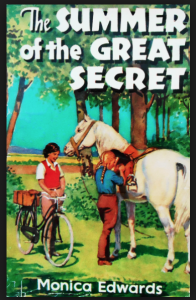 The final two are both series, from which I can’t single out one book. Monica Edwards’ Romney Marsh series, better known as the Tamsin and Rissa books have a lot to do with my now writing a series about a group of friends. The first I was given was the Summer of the Great Secret, about the Kent Coast, smuggling and –Ponies! That was the other love of my life, although I wrote a lot as well, but that was just something you did, not a great ambition. When I managed to fracture my pelvis two years ago, I re-read the entire series – and, incidentally all the others mentioned here.
The final two are both series, from which I can’t single out one book. Monica Edwards’ Romney Marsh series, better known as the Tamsin and Rissa books have a lot to do with my now writing a series about a group of friends. The first I was given was the Summer of the Great Secret, about the Kent Coast, smuggling and –Ponies! That was the other love of my life, although I wrote a lot as well, but that was just something you did, not a great ambition. When I managed to fracture my pelvis two years ago, I re-read the entire series – and, incidentally all the others mentioned here.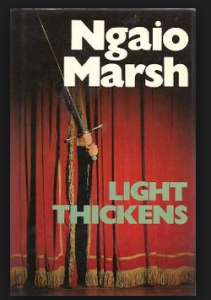 And last, the Ngaio Marsh Roderick Alleyn series. My parents had all her books currently published, and between us we bought each new one as it came out. It started off as a familiar theme – the aristocratic detective, a la Albert Campion and Peter Wimsey. But Alleyn soon developed his own distinct personalility, as did his wife, son and sidekicks. And he moved with the times. The rather grating treatment of “the lower classes” was dropped as attitudes changed. The other thing that particularly chimed with me was that Marsh received her “damery” as she called it, for her services to theatre in New Zealand, and several of her books have a theatrical setting, about which she was incredibly knowledgeable. Marsh is the reason that I now write a mystery series, and I have just re-read her entire canon, beginning to end.
And last, the Ngaio Marsh Roderick Alleyn series. My parents had all her books currently published, and between us we bought each new one as it came out. It started off as a familiar theme – the aristocratic detective, a la Albert Campion and Peter Wimsey. But Alleyn soon developed his own distinct personalility, as did his wife, son and sidekicks. And he moved with the times. The rather grating treatment of “the lower classes” was dropped as attitudes changed. The other thing that particularly chimed with me was that Marsh received her “damery” as she called it, for her services to theatre in New Zealand, and several of her books have a theatrical setting, about which she was incredibly knowledgeable. Marsh is the reason that I now write a mystery series, and I have just re-read her entire canon, beginning to end.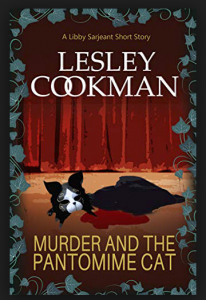
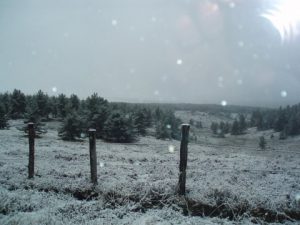

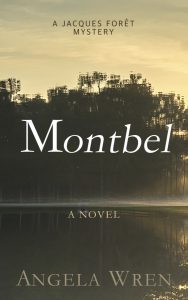
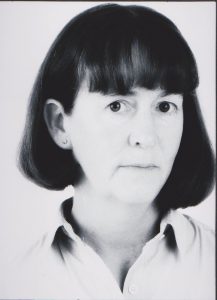 Bio
Bio